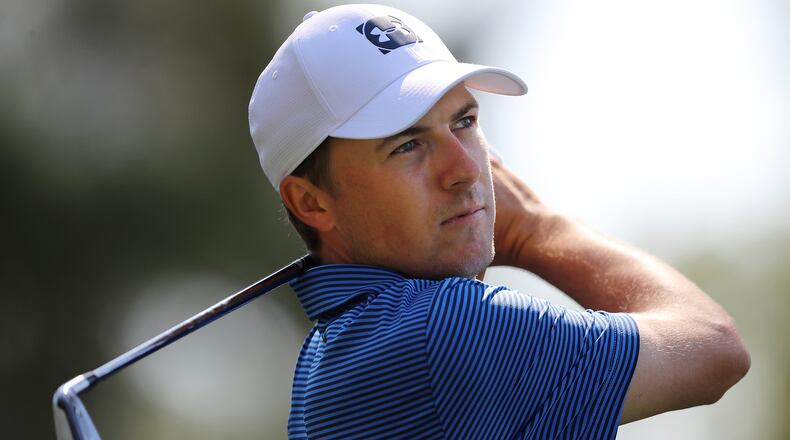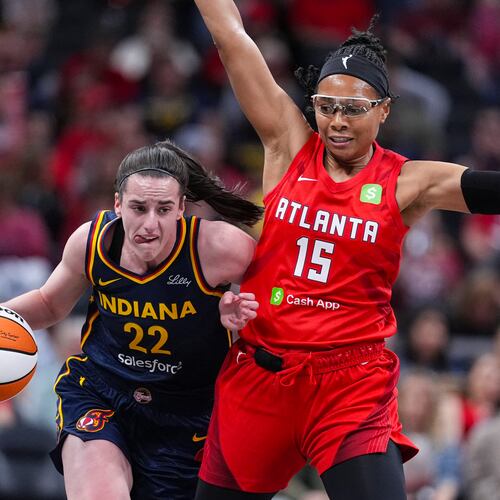For all the reference material that players stash on the way to the first tee -- yardage book, pin placement sheet, IRS actuarial tables -- Jordan Spieth is the only guy who could use a calendar too.
Ever since December and a bout with mononucleosis, Spieth has been sort of suspended in time, his game sometimes sensing its still February in California even though it's April now at his favorite place in the world. And while he usually becomes a natural favorite at the Masters just by lacing up his spikes, this one feels a little different. Just a few weeks ago with his game in disarray, he was tossing around the word "panic."
"It's not been the greatest start to the year of any that I've had," he said.
Spieth has arrived in Augusta National coming off poor tournaments before. In 2014 and 2016, he missed the cut at the Houston Open the previous week and then played his heart out the following week in runner-up Masters finishes both years. But he usually has won at least one event coming in. Not this year. His game has been so inconsistent that when he actually popped up the leaderboard at Houston last Sunday, he tried to pretend he held the lead, though he knew he a few shots off the pace.
"I kind of wanted that 'you need to make this' feeling," he said. "... It's just been about just finding that setup that I had for a couple years that I kind of got a little stiff and away from recently."
That is, in part, a December residual. Spieth usually spends the last month of his offseason on swing maintenance in preparation for the Hawaiian swing in January. But a mononucleosis diagnosis left him in bed for much of the month and though he has fully recovered, his game has labored to catch up. Until his third-place finish in Houston last week, Spieth had ping-ponged through his previous seven tournaments, missing a couple cuts and finding the top 10 only once, that a ninth-place finish at the Genesis Open in Los Angeles.
Scoring was unpredictable for one of the PGA Tour's most predictable players.
"It was just, I don't shoot 5-over very often," he said. "I shoot 5-over and you're like, what the heck happened? And then when you get a few tournaments in a row where it's just ... for me, it was just what exactly am I doing? When I set my putter down and I look up and (it's) not looking at the same place. Sometimes I get that for a day, sometimes it's a couple weeks and then I was getting it for a couple months. It was kind of, what in the world is going on?"
In practice rounds this week, he has found something restorative in Augusta National -- "It's kind of helped me settle in" -- which might make the field take note. In his four Masters, he is an aggregate 26 shots under par. After finishing second-first-second in his first three tries, he slipped to 11th last year, though he was two strokes off the lead on Sunday morning.
Still three months shy of his 25th birthday, Spieth's connection with Augusta National is palpable, which may also buoy him as the week goes on. While the Masters instills reverence in almost all who play here, he has already defined himself by his Masters performances.
"A place like this, he just loves this tournament," said Justin Thomas, Spieth's rival dating back to junior golf. "All of us love this tournament but he really, really loves this tournament."
The last couple weeks have given Spieth hope. His putting seems to have come around and he ranked first in tee-to-green at Houston. But if this becomes the first Masters where he fails to contend, he seems at peace with that too.
"I mean, if I don't play well this week, well, I didn't exactly have the lead into it that I was looking for every single year, going back to my rookie season, coming into here," he said. "And that's OK with me. It's OK. I feel good about my game. I feel confident, I feel like I should have a chance to win this week.
"And that's exciting to me. I made big strides in the last two weeks, to get from kind of a panic place to a very calm, collected and confidence place. And it's difficult to do in two weeks. Sometimes it takes years."
Despite all that, Spieth began to wonder out loud when someone asked about the possibilities of a second green jacket, fantasizing about making space in his closet back in Dallas.
"I think if you have a second and you somehow walk away with one, it's not as noticeable if you accidentally take it," he said. "I think that's where you can kind of have it at home. I think some of the older guys maybe ... sorry. I don't think I can say that."
But a guy can think it, right?
About the Author
Keep Reading
The Latest
Featured


